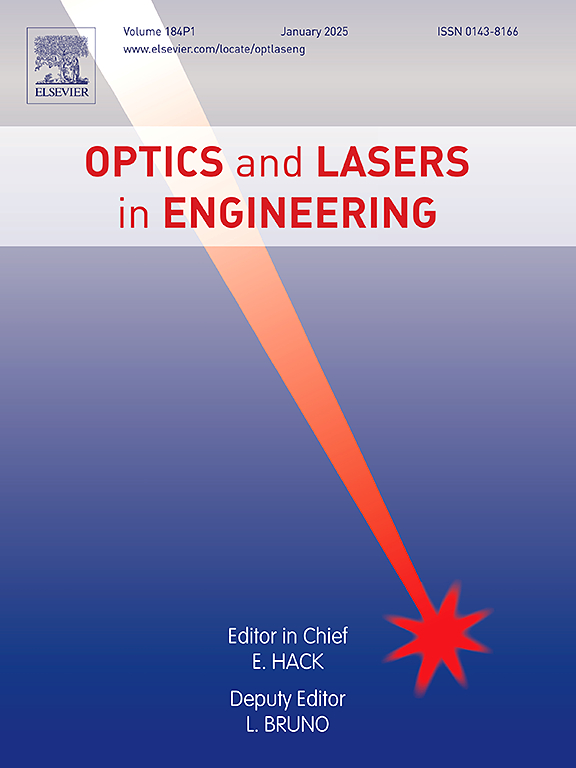Projection to latent structures regression and its application to Mach–Zehnder interferometer optical fiber sensors for acetone detection
IF 3.5
2区 工程技术
Q2 OPTICS
引用次数: 0
Abstract
The techniques of multivariate analysis methods as prediction models open a new vision to the analysis of applied data. The method used in this work was projection to latent structures regression, which is a regression method that uses the latent variables generated by calculating the linear relationship between the dependent and independent variables giving them equal importance and thus obtaining the maximum variance and correlation of these variables. This method was applied to optical fiber sensors for acetone detection. It is important to detect acetone because it is a biomarker of diabetes mellitus. The sensor was fabricated with two cascaded long-period fiber gratings (LPFG) with a 515 µm grating period and separated 1 cm to form a Mach–Zehnder interferometer (MZI). Clinical studies for the diagnosis of diabetes are usually invasive, the development of these sensors proposes a new non-invasive option through the detection of acetone in human breath whose concentrations are in the order of 1.25–2.5 ppm. To study the response of the sensors to acetone, different sensing films, such as polydimethylsiloxane (PDMS), polymethyl methacrylate, Apiezon L and Apiezon T were used, which have a good affinity to this compound. Spectral changes in the transmission spectrum of the MZI were obtained due to the modes interference together with an increment of the sensitivity, since the interaction between the acetone concentration and the sensing film provokes a change in the effective index of the cladding, which in turn is amplified by the LPFGs separation. The analysis showed that the best results were obtained for the sensor with PDMS as sensing film, with the lowest limit of detection, 1.7 ppm using 4 latent structures.
投影到潜在结构回归及其在用于丙酮检测的马赫-泽恩德干涉仪光纤传感器中的应用
作为预测模型的多元分析方法技术为应用数据分析开辟了新的视野。这项工作中使用的方法是潜在结构回归投影法,这是一种使用通过计算因变量和自变量之间的线性关系而产生的潜在变量的回归方法,给予它们同等的重要性,从而获得这些变量的最大方差和相关性。这种方法被应用于丙酮检测的光纤传感器。检测丙酮非常重要,因为它是糖尿病的生物标志物。传感器由两个级联长周期光纤光栅(LPFG)制成,光栅周期为 515 微米,相距 1 厘米,形成一个马赫-泽恩德干涉仪(MZI)。用于诊断糖尿病的临床研究通常都是侵入性的,而这些传感器的开发提出了一种新的非侵入性选择,即通过检测人体呼气中丙酮的浓度,其浓度约为 1.25-2.5 ppm。为了研究传感器对丙酮的反应,使用了不同的传感薄膜,如聚二甲基硅氧烷 (PDMS)、聚甲基丙烯酸甲酯、Apiezon L 和 Apiezon T,它们对这种化合物有很好的亲和力。由于丙酮浓度和传感薄膜之间的相互作用会引起包层有效指数的变化,而这种变化又会被 LPFGs 分离放大,因此 MZI 的透射光谱会因模式干扰而发生光谱变化,同时灵敏度也会提高。分析表明,使用 PDMS 作为传感膜的传感器效果最好,使用 4 个潜伏结构的检测限最低,为 1.7 ppm。
本文章由计算机程序翻译,如有差异,请以英文原文为准。
求助全文
约1分钟内获得全文
求助全文
来源期刊

Optics and Lasers in Engineering
工程技术-光学
CiteScore
8.90
自引率
8.70%
发文量
384
审稿时长
42 days
期刊介绍:
Optics and Lasers in Engineering aims at providing an international forum for the interchange of information on the development of optical techniques and laser technology in engineering. Emphasis is placed on contributions targeted at the practical use of methods and devices, the development and enhancement of solutions and new theoretical concepts for experimental methods.
Optics and Lasers in Engineering reflects the main areas in which optical methods are being used and developed for an engineering environment. Manuscripts should offer clear evidence of novelty and significance. Papers focusing on parameter optimization or computational issues are not suitable. Similarly, papers focussed on an application rather than the optical method fall outside the journal''s scope. The scope of the journal is defined to include the following:
-Optical Metrology-
Optical Methods for 3D visualization and virtual engineering-
Optical Techniques for Microsystems-
Imaging, Microscopy and Adaptive Optics-
Computational Imaging-
Laser methods in manufacturing-
Integrated optical and photonic sensors-
Optics and Photonics in Life Science-
Hyperspectral and spectroscopic methods-
Infrared and Terahertz techniques
 求助内容:
求助内容: 应助结果提醒方式:
应助结果提醒方式:


